International community reacts to Gaza ceasefire agreement
World leaders, including Biden, Trump, Guterres, and others, react to Gaza ceasefire.
1737018675-0/sidra--(97)1737018675-0-640x480.webp)
World leaders have responded to the ceasefire agreement between Israel and Hamas, which was reached on Wednesday to end the prolonged Israeli war on Gaza.
Reactions have varied, with each leader emphasizing different aspects of the deal, from its potential to bring humanitarian relief to its long-term impact on regional stability.
US President Joe Biden:
At the White House, President Joe Biden confirmed a ceasefire and hostage agreement between Israel and Hamas.
He stated, "Fighting in Gaza will stop, and soon the hostages will return home to their families." He also expressed hope for a "credible pathway" for the Palestinian people toward statehood and a future of normalisation for Israel in the region, including with Arab neighbors like Saudi Arabia.
US President-elect Donald Trump:
Trump shared the news of the deal on his Truth Social platform, confirming that hostages would soon be released. He emphasised that his National Security team would continue efforts to ensure Gaza does not become a "terrorist safe haven."
UN Secretary-General Antonio Guterres:
Guterres expressed the UN's readiness to support the ceasefire implementation and humanitarian aid delivery, emphasizing the need for access to Gaza to deliver "lifesaving humanitarian support" to Palestinians.
Former US President Barack Hussain Obama:
Barack Obama said the ceasefire deal between Israel and Hamas is a positive development. He highlighted that the deal stops the "bloodshed" and provides much-needed aid.
Turkish Foreign Minister Hakan Fidan:
Fidan called the ceasefire an important step for regional stability and reaffirmed Turkey's commitment to a two-state solution for the Israeli-Palestinian conflict.
Qatar's Prime Minister Sheikh Mohammed bin Abdulrahman Al Thani:
Sheikh Mohammed urged calm in Gaza as the ceasefire deal prepares to take effect on January 19, calling for an end to the violence and destruction.
Egyptian President Abdel Fattah Al-Sisi:
President Al-Sisi welcomed the ceasefire, emphasizing the urgency of delivering humanitarian aid to Gaza swiftly.
International Committee of the Red Cross President Mirjana Spoljaric:
Spoljaric welcomed the deal while urging that the protection of civilian lives remain a priority and that the commitment to the ceasefire be upheld.
European Commission President Ursula von der Leyen:
Von der Leyen expressed hope for the ceasefire’s potential to end suffering in Gaza, stressing the need for full implementation of the deal as a step toward long-term stability.
UAE Foreign Minister Sheikh Abdullah bin Zayed:
The UAE emphasised the importance of both parties adhering to their commitments and ensuring the unhindered delivery of humanitarian aid.
Qatari Emir Sheikh Tamim bin Hamad Al Thani:
The Emir voiced hope that the ceasefire agreement would mark the end of aggression and killing in Gaza and lead to the start of a new phase for the Palestinian cause.
Saudi Arabia's Foreign Ministry:
Saudi Arabia welcomed the deal, thanking the mediating countries and emphasizing the need for full Israeli withdrawal from Gaza and a resolution of the core issues of the conflict.
Mohammed Abdulsalam, Spokesperson for Yemen's Houthis:
Abdulsalam saluted Gaza’s resilience and criticized Israel's occupation, calling it a regional threat.
South African Government:
South Africa welcomed the ceasefire and condemned Israel’s actions in Gaza. It called for a just peace solution that respects the rights of both Palestinians and Israelis.
Australia's Prime Minister Anthony Albanese:
Albanese termed the ceasefire a constructive step toward peace, but also stressed that Hamas should not have a role in Gaza's future governance.
Cindy McCain, Executive Director of the World Food Program:
McCain emphasised that the ceasefire should allow for the large-scale delivery of food to Gaza, stressing the need for open and secure border crossings.
Belgium's Prime Minister Alexander De Croo:
De Croo expressed relief for the hostages and their families, voicing hope that the ceasefire would lead to lasting peace and stability.
German Foreign Secretary Annalena Baerbock:
Baerbock hoped the ceasefire would provide a genuine opportunity to end the conflict and emphasized the need for responsible action from all parties.
British Prime Minister Keir Starmer:
Starmer highlighted the urgency of delivering humanitarian aid to Gaza and called for a permanent solution based on a two-state framework.
Norwegian Prime Minister Jonas Gahr Støre:
Støre emphasised the need to strengthen Palestinian institutions and provide security guarantees for both sides.
Spanish Prime Minister Pedro Sánchez:
Sánchez described the ceasefire as crucial for achieving regional stability and a two-state solution.
Pakistan's Response:
A spokesperson from the Foreign Office expressed concern over the massive loss of lives and property in Gaza due to Israeli actions, referring to the situation as a "genocidal onslaught."
Pakistan reiterated its support for a comprehensive and lasting solution to the Palestinian issue, advocating for a sovereign Palestinian state based on the 1967 borders with Jerusalem as its capital.

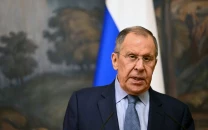
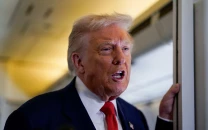

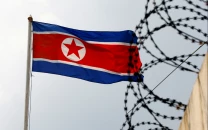

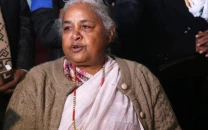






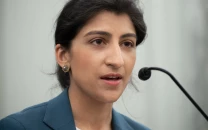







COMMENTS
Comments are moderated and generally will be posted if they are on-topic and not abusive.
For more information, please see our Comments FAQ